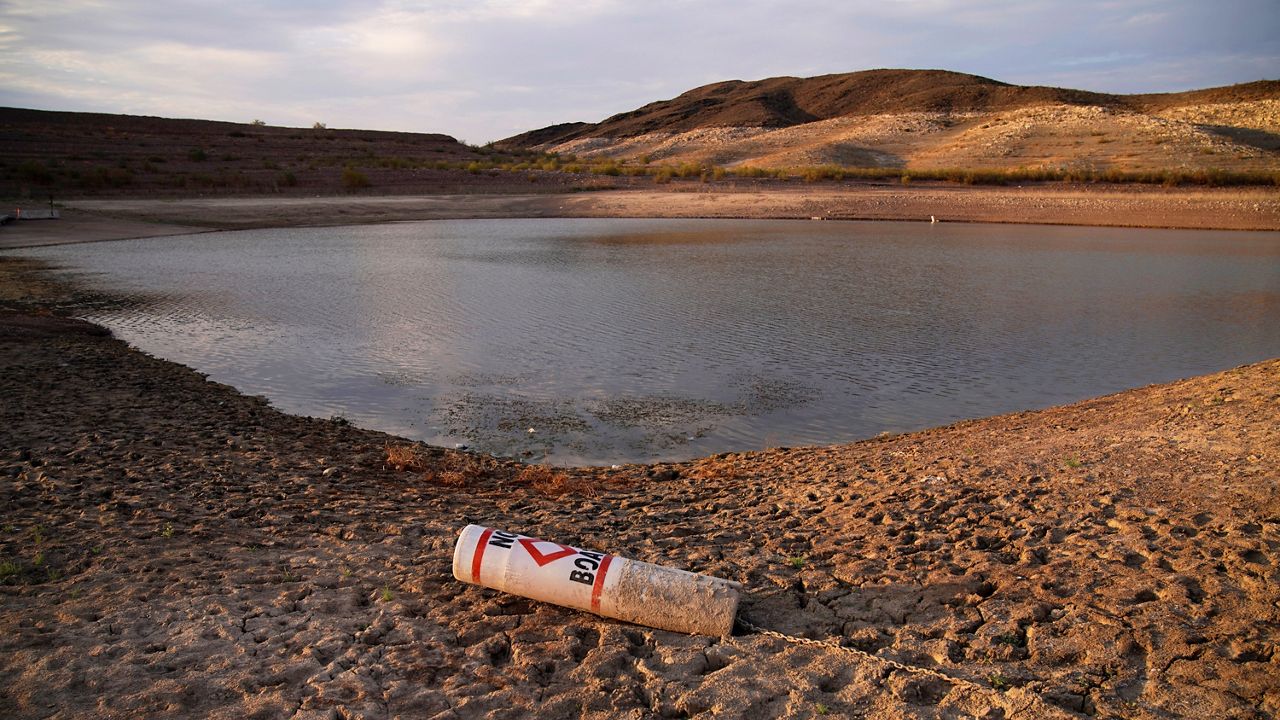LOS ANGELES (CNS) — The Southern California region's water wholesaler joined with the federal government and agencies in Nevada and Arizona Wednesday in an agreement aimed at dramatically cutting withdraws from the Colorado River and raising the water level in Lake Mead.
The Metropolitan Water District of Southern California was joined in the pact by the U.S. Bureau of Reclamation, the Central Arizona Project, the Arizona Department of Water Resources and the Southern Nevada Water Authority.
The agencies plan to contribute a combined $200 million for various projects to reduce reliance on the drought-stricken Colorado River system as part of the agreement. As a result, the 500+ Plan is aimed at preventing 1 million acre-feet of water from being drawn out of Lake Mead over the next two years.
According to the participating agencies, that amount of water is enough to serve 1.5 million households for a full year. Leaving that water in place would lift the water level of Lake Mead by 16 feet.
"Two decades of drought on the Colorado River is taking a toll across the Basin and on Lake Mead," Bureau of Reclamation Commissioner Camille Calimlim Touton said in a statement. "By working together we've staved off these historic low levels for years, thanks to collaboration and conservation in the Lower Basin. But we need even more action, and we need it now."
The pact is a follow-up to a 2019 agreement involving Arizona, Nevada and California known as the Lower Basin Drought Contingency Plan, or DCP, which was aimed at preventing Lake Mead from reaching dangerously low levels.
"We had hoped the contributions made under the DCP would be enough to stabilize Lake Mead while we seek longer-term solutions to the challenges on the Colorado River. But they aren't, which is why we are moving forward with the 500+ Plan," MWD General Manager Adel Hagekhalil said in a statement.
Under the pact, MWD will contribute $20 million toward projects aimed at protecting the lake. The Central Arizona Project and Southern Nevada Water Authority will also each contribute $20 million, while the Arizona Department of Water Resources will commit $40 million. The Bureau of Reclamation will match all the donations, creating an overall funding pool of $200 million.
The money will fund a series of conservation programs, some of which are already being implemented, officials said. The programs will include water-saving efforts in both urban and agricultural communities.
MWD and other water agencies across California have been stepping up conservation efforts in the face of a statewide drought that has dramatically diminished supplies. Gov. Gavin Newsom previously called on residents to voluntarily cut their individual water use by 15%. Statewide, however, that call has gone largely unheeded. Although efforts have improved in recent weeks.
The California Water Boards said this week water use in October was down across the state by 13.2% compared to the same month last year. But since July, when Newsom made his call for conservation, overall water use has only dropped by 5.7%, according to the state.
The MWD board of directors declared a drought emergency in November, urging local water suppliers to implement all conservation measures possible to reduce usage. The district manages water deliveries to 26 agencies in six counties, serving 19 million people, including the Los Angeles Department of Water and Power.



